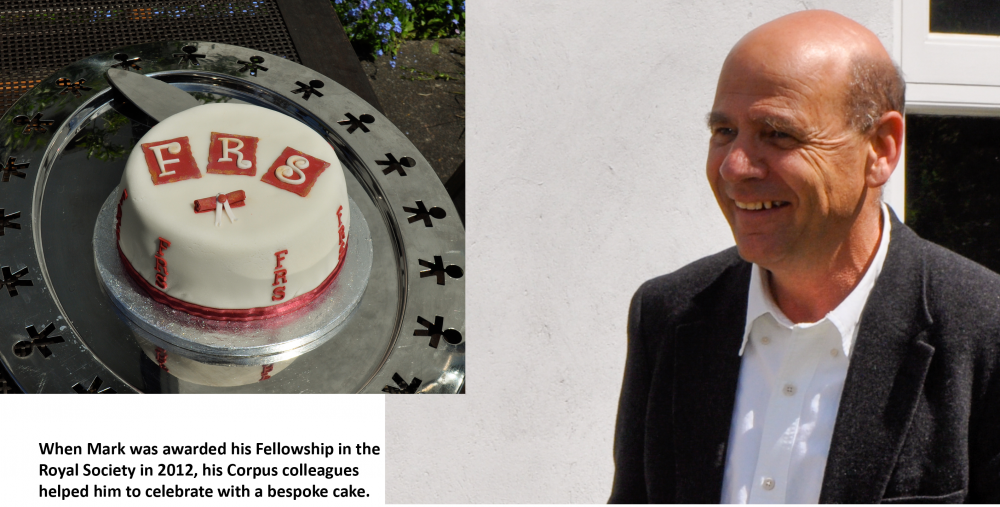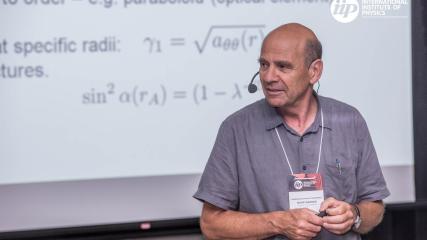Professor Mark Warner FRS (26 January 1952 - 24 December 2021)
It is with great sadness that we report the death of Life Fellow Mark Warner after a long illness. Mark’s contributions to this College were profound and lasting. He came to Corpus from New Zealand as an undergraduate in 1970 to read Mathematics, and one of the earliest Girdlers’ Scholars. In addition to excelling in his studies, he was an accomplished sportsman, winning a Blue by swimming for the University, and a half-Blue for water polo. After changing to the Natural Sciences Tripos in his second year, he went on to receive a PhD in Theoretical Physics from Imperial College London, and held an IBM Research Fellowship in San Jose, California before returning in 1986 to a Lectureship at the Cavendish Laboratory, and a Fellowship in Corpus. In his 36 years as a Fellow he held many posts, including Senior Tutor, but will be remembered especially in his role as Director of Studies, where he taught, inspired and mentored generations of physicists.
 As a researcher, Mark made pioneering contributions in the field of liquid crystal elastomers: materials with cross-linked polymer chains that possess a combination of liquid and crystal properties, and have applications as artificial muscles and in microrobotics. He received numerous awards for his work, including the Maxwell Medal and Prize and the Bragg Medal of the Institute of Physics, the EPS Europhysics Prize of the European Physical Society and the Alexander von Humboldt Research Prize. He was elected an Honorary Fellow of the Royal Society of New Zealand in 2002, and a Fellow of the Royal Society in 2012.
As a researcher, Mark made pioneering contributions in the field of liquid crystal elastomers: materials with cross-linked polymer chains that possess a combination of liquid and crystal properties, and have applications as artificial muscles and in microrobotics. He received numerous awards for his work, including the Maxwell Medal and Prize and the Bragg Medal of the Institute of Physics, the EPS Europhysics Prize of the European Physical Society and the Alexander von Humboldt Research Prize. He was elected an Honorary Fellow of the Royal Society of New Zealand in 2002, and a Fellow of the Royal Society in 2012.
Mark’s lifelong passion for science education led him to found the Isaac Physics online platform with Dr Lisa Jardine-Wright in 2014. Since its launch, over 350,000 fourteen- to nineteen-year-old students have studied on this platform, solving 76,000,000 physics problems between them. The newly launched STEM SMART programme delivered via Isaac Physics is a fitting legacy for his commitment to encouraging bright and ambitious students from all backgrounds to study physics at university.
The Master, Professor Christopher Kelly, summed up the feeling in the Fellowship: “In Mark we have lost a much admired colleague, a fine friend and loyal and dedicated member of the College community. Mark joined a brilliance in research with a deep passion for teaching. He achieved that combination to which all of us in universities should aspire. He will be greatly missed.”

